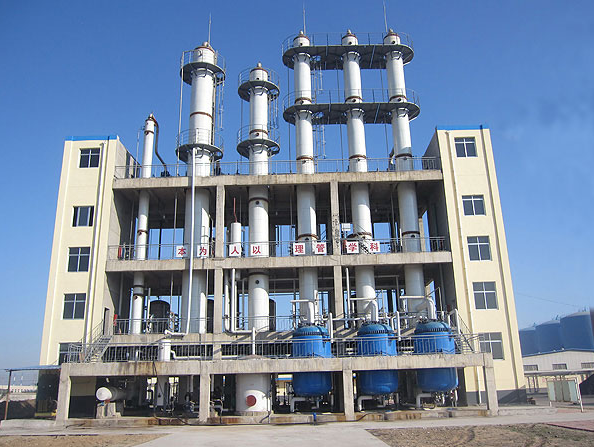Introduction
In this comprehensive guide, we delve into the multifaceted world of ethyl acetate, a versatile chemical compound that plays a significant role in various industries. We will explain what is ethyl acetate and its properties, applications in agriculture.
●What is Ethyl Acetate?
Ethyl acetate, with the chemical formula CH3COOC2H5, is an ester derived from acetic acid and ethanol. It is a colorless liquid with a pleasant fruity odor, making it easily distinguishable. This compound is a vital component in the world of chemistry and industry due to its diverse range of properties and applications.
●Properties of Ethyl Acetate
1. Chemical Structure
Ethyl acetate's molecular structure consists of two main components: an acetyl group (CH3CO-) and an ethyl group (C2H5-). This combination results in a compound with unique characteristics, making it suitable for various purposes.
2. Physical Properties
Odor: Ethyl acetate is renowned for its sweet, fruity smell, often described as similar to ripe pears or bananas.
Solubility: It is highly soluble in common organic solvents, such as acetone, ethanol, and chloroform.
Boiling Point: Ethyl acetate has a relatively low boiling point of approximately 77 degrees Celsius (171 degrees Fahrenheit).
3. Chemical Properties
Reactivity: Ethyl acetate is a relatively stable compound under normal conditions, but it can react with strong bases and acids.
Ester Formation: It can be used as a reagent in esterification reactions, a crucial process in organic synthesis.
Hydrolysis: Ethyl acetate is susceptible to hydrolysis in the presence of water, breaking down into acetic acid and ethanol.
●Applications in Agriculture
Ethyl acetate is a versatile chemical compound that finds various applications in different industries, including agriculture. In agriculture, ethyl acetate is primarily used as a solvent, but it also serves other purposes. Let's explore the use of ethyl acetate in agriculture in more detail.
1. Pesticide Formulations:Ethyl acetate is commonly used as a solvent in the formulation of agricultural pesticides. It serves as a carrier for active ingredients, helping to dissolve and distribute them evenly within the formulation. Ethyl acetate's solvent properties make it effective in dispersing both oil-soluble and water-soluble pesticides, facilitating their application and effectiveness in pest control.
2. Extraction of Plant Compounds:Ethyl acetate is widely employed in the extraction of bioactive compounds from plants. It is used as a non-polar solvent in various extraction techniques, such as maceration, percolation, and Soxhlet extraction. Ethyl acetate selectively extracts desired compounds, including essential oils, phytochemicals, and natural flavors, from plant materials. This process helps in obtaining concentrated extracts for use in pharmaceuticals, cosmetics, and food products.
3. Fruit Ripening:Ethyl acetate plays a role in fruit ripening processes. It occurs naturally in various fruits, and its production increases as fruits ripen. In controlled environments, ethyl acetate can be used to induce artificial ripening in some fruits, such as bananas. By exposing unripe fruits to ethyl acetate vapors, the compound triggers the release of ethylene, a natural ripening hormone, which accelerates the ripening process.

4. Vineyard Management:In vineyards, ethyl acetate is employed for various purposes related to vine and grape management. It is used as a solvent for spraying pheromones, which disrupt the mating patterns of specific pests, such as grapevine moths. By interfering with their reproduction, ethyl acetate contributes to pest control strategies in vineyards, reducing the need for chemical pesticides. Additionally, ethyl acetate is utilized in grapevine tissue culture and micropropagation techniques, facilitating the growth and development of new plants from small explants.
5. Solvent for Agrochemical Analysis:Ethyl acetate serves as a common solvent for analytical techniques in agrochemical analysis. It is utilized to extract pesticide residues from various agricultural samples, such as fruits, vegetables, soil, and water. Ethyl acetate's solubility properties and low toxicity make it suitable for sample preparation and analysis by techniques like gas chromatography (GC) or liquid chromatography (LC).
6. Adjuvant in Pesticide Sprays:Ethyl acetate can act as an adjuvant in pesticide sprays. Adjuvants are substances added to pesticide formulations to enhance their performance. Ethyl acetate can improve the spreading and wetting properties of pesticide sprays, ensuring better coverage on plant surfaces. By reducing surface tension, it promotes the uniform distribution of the active ingredients, leading to improved effectiveness and pest control.
7. Preservation of Plant Specimens:In agricultural research and botanical studies, ethyl acetate is utilized for the preservation of plant specimens. It serves as a solvent in the preparation of herbarium sheets, where plant samples are collected, dried, and stored for taxonomic identification and reference purposes. Ethyl acetate helps in preserving the plants, preventing decay and maintaining their structural integrity for long-term storage.
It is important to note that while ethyl acetate has various applications in agriculture, its use should be conducted in accordance with regulations and safety guidelines. Proper handling, storage, and disposal procedures should be followed to minimize environmental impact and ensure the safety of workers and consumers.
●Conclusion
Ethyl acetate plays a significant role in agriculture. Its applications range from serving as a solvent in pesticide formulations and plant compound extraction to aiding in fruit ripening and vineyard management. Additionally, ethyl acetate is utilized as a solvent for agrochemical analysis, an adjuvant in pesticide sprays, and a preservation agent for plant specimens. Its versatility and properties make it a valuable component in different agricultural processes, contributing to pest control, research, and plant growth management.
If you are in search of a dependable partner to tackle ethyl acetate-related challenges, look no further than Sanli Fengxiang Technology Co., Ltd. With our proven track record and dedication to creating safer and cleaner environments, they are the ideal choice for ethyl acetate management solutions.
Contact Us today and take the first step towards a healthier and more sustainable future!














